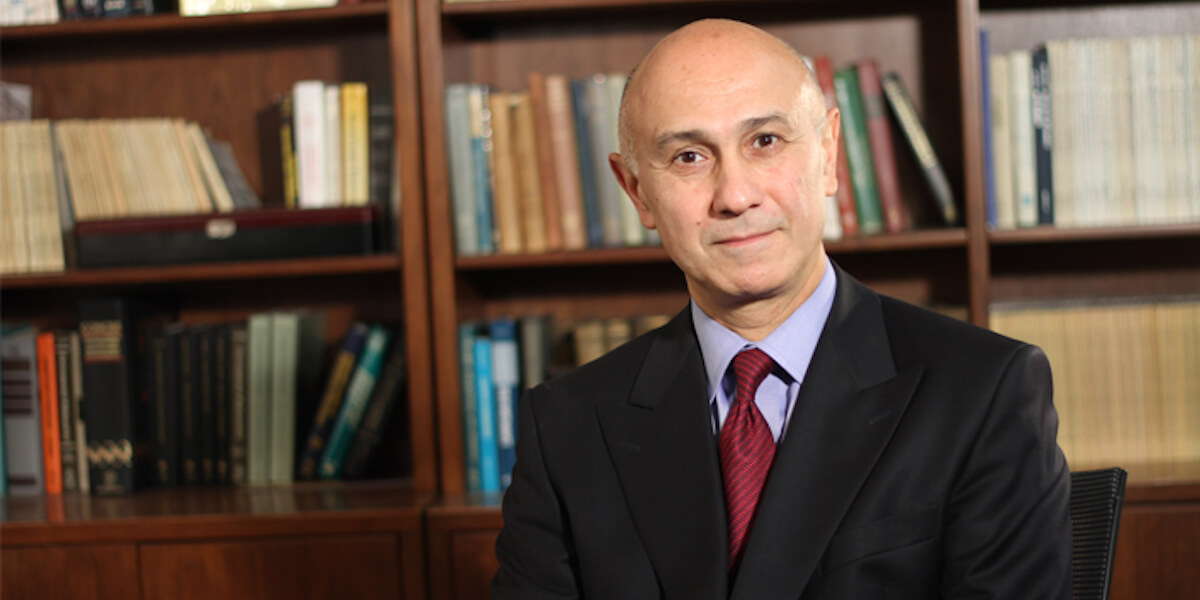
Professor of Civil and Environmental Engineering, Industrial Systems Engineering, and International Relations Najmedin Meshkati. Image/USC Viterbi
Najmedin Meshkati, USC professor in the Daniel J. Epstein Department of Industrial and Systems Engineering and the Sonny Astani Department of Civil and Environmental Engineering, this month appeared before the Senate Committee on Commerce, Science and Transportation to discuss the findings of the Federal Aviation Administration (FAA), Expert Panel that examined safety culture and processes at Boeing.
Meshkati, who has been recognized by the Human Factors and Ergonomics Society (HFES) as an inaugural “Titan of HFES,” was invited to Washington, D.C. to testify as part of his role on the FAA Expert Panel, which was tasked by Congress to examine safety at Boeing and make recommendations in the wake of a series of safety-related incidents. These incidents include two deadly crashes in Indonesia in 2018 and Ethiopia in 2019 involving Boeing 737 MAX jets, which killed 346 people. In January 2024, a Boeing 737 MAX was also involved in an emergency when a door plug blew off mid-flight on an Alaska Airlines jet.
The expert panel released its report in February, finding a range of deficiencies, including a lack of awareness of safety-related metrics throughout the organization. Meshkati and his fellow panel members worked for nearly a year on the investigation and report, reviewing years of safety records at Boeing, and conducting 250 interviews with employees across the company.
The expert panel made 53 recommendations, suggesting changes to the organization’s safety training and reporting procedures, improving human factors, and reducing the chance of retaliation against employees who raise concerns.
In his oral opening statement, Meshkati told the Senate Committee that the recommendations made in the report were vital, and the panel hoped that they would be implemented in their entirety.
“My participation in this distinguished expert panel further corroborated what my research experience has taught me in the last 40 years. Safety culture is the foundation of any process and operation in an organization – it could make or break the system,” Meshkati said.
Meshkati added that human operators of safety-critical systems, such as pilots in an airplane or operators of a nuclear power plant, always constitute the system’s first and last layer of defense against a catastrophic failure.
“As we saw at the “Miracle on the Hudson” and at Fukushima Daini,” Meshkati said. “As such, as our panel found and recommended, human factors and human-systems integration considerations should receive attention commensurate to their importance in aviation safety in aircraft design and operation.”
“My research experience has taught me that a world-class engineering company that makes or operates a safety-critical system such as an aircraft must be run by world-class engineers who are also thoroughly trained to understand, respect and implement human factors and a healthy safety culture,” Meshkati said.
U.S. Senator Maria Cantwell (D-WA), chair of the Senate Committee on Commerce, Science, and Transportation, released an excerpt of her questions and Meshkati’s answers concerning human factors and safety culture in a press release following the hearing.
A full transcript of the senators’ statements, testimonies and exchanges of the hearing is expected to be released in May 2024, as part of the congressional records.
Responding to the release of the report, Boeing released a statement expressing support for the assessment, noting that while steps had been taken to foster safety culture at Boeing, more work needed to be done, and that the company would review and learn from the findings.
View the testimony from Meshkati and his expert panel colleagues here:
Published on May 3rd, 2024
Last updated on May 6th, 2024













